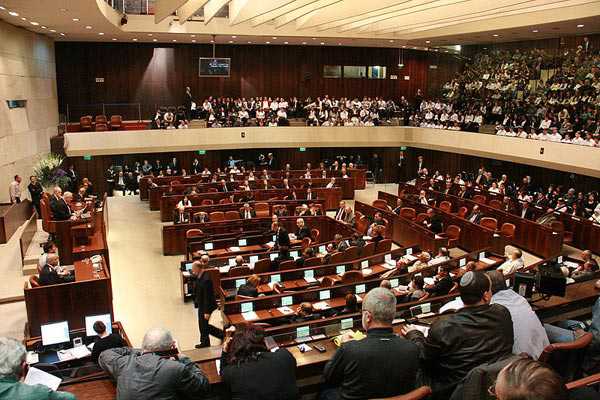Gunaysu: Snapshots from the Fragmented Landscape of Turkey
This time my column will have no structural integrity. It will be fragmented just like life itself and just like my thoughts wandering around, coming and going at unexpected times, intertwined to form strange, disconnected images in my mind, culminating in absurd dreams at night.
Yesterday, on the 13th of May, a very young, very intelligent, bright-eyed, energetic, and warm-hearted journalist from Yerevan interviewed me. While talking, I suddenly found myself wishing I had a daughter like her. She asked me questions about the prospects of normalization between Turkey and Armenia. I told her what I think very briefly: How can anyone believe Turkey really wants friendly relations with Armenia while it, at the same time, displays such an unreservedly aggressive denial of the genocide (I mean, not just saying “We didn’t do it,” but saying “They deserved it”)? Official statements about taking steps for good relations with Armenia were all part of a marketing campaign to sell the “Turkey” brand to the world, as a country evolving into a more democratic system, eliminating its taboos, and seeking good relations with its neighbors. Among thousands, I gave only one very recent example.
That same day, journalist Ozgur Gundem reported how in Diyarbakir’s Dicle University, the history exam included the question: “The Ottoman state did not commit Armenian genocide. Deportations took place on the suggestion of Germany because of the treachery of Armenians who stabbed the Ottoman army in the back. During deportations some of them died of hunger, diseases, and cold weather. True or False?” Gundem called the professor who had prepared the exam question, and the latter confirmed he had prepared it knowingly, to ensure that his students learned the truth and were not mislead by unfounded allegations.[1] This is the country that is supposedly taking steps towards good relations with Armenia.
While we sat and talked in Uskudar by the sea, convoys of political parties were campaigning for the upcoming general elections with their unbearably high-volume songs and slogans filling the air, making it difficult for us to hear each other. At the same time, mass arrests were happening in the cities against Kurdish students, activists, and their supporters; military operations were intensifying in the Kurdistan mountains, with an unprecedented number of Kurds joining the funerals of guerillas; and nationalist mobs were attacking the Kurds’ Peace and Democracy Party offices in the west before the eyes of security forces.
That same day, on the 13th of May, before I met the young journalist, an e-mail had reminded me that it was also the day when Armenak Bakirciyan, the legendary guerilla leader of one of the oldest Marxist-Leninist armed movements in Turkey, was shot dead in an ambush by the military in Elazig (the old Armenian city of Harpert) in 1980.
Armenak, the son of an Armenian family from Diyarbakir, was named after Armenak Ghazarian, popularly known as Hrayr Tjhokhk, one of the heroes of the second Sasun resistance in 1904. More than a century later and carrying his name, Armenak Bakirciyan was Hrant Dink’s close friend at the Surp Hac Tibrevank Armenian School in Uskudar. He and Hrant Dink, together with other schoolmates, worked selflessly to find Armenian children in the remote villages of Anatolia, the grandchildren of genocide survivors who were unable to learn their mother tongue, and bring them to Istanbul to attend Armenian schools, where they could study in their own language. Some of these volunteer teachers of the Armenian language and culture joined the armed revolutionary organization TKP/ML-TIKKO in Turkey, waging an armed struggle, mainly in the southeast of Turkey, especially Dersim. Armenak was one of them, like Hayrabet Hancer, Nubar Yalimyan, and Manuel Demir, hiding in the mountains and punishing merciless army officers who made life hell to the villagers with arbitrary arrests and beatings in the village squares and market places, terrorizing them in every way. Armenak became a hero in the eyes of the local Kurds. He was caught wounded in a raid to the house he was hiding in and taken to prison in Izmir. Two years after his arrest, he managed to escape with the help of his comrades, fleeing to the mountains once again. On May 13, 1980, he was shot dead in an ambush in Elazig, Karakocan. The military, refusing to return his body to his family, buried him in the cemetery of the nameless. His comrades managed to secretly take his dead body out and bury him in the village of Farach, in the Mezgert (Mazgirt) District of Dersim to fulfill his last wish. During the small ceremony, the imam—in fact a secret Armenian—read lines from a poem written for Armenak: “Sing songs to me Armenak! / Let the darkness fall apart with your melody / Let your voice wake up mountains from sleep / And let life keep going with you.”
Armenak, despite his admirers and followers for more than 30 years now, was just as lonely as the others that Armenian Weekly contributors Talin Suciyan and Ayda Erbal referred to in their recent article “One Hundred Years of Abandonment.”[2] The armed illegal organization he joined as an Armenian communist was the most radical movement of its time, refusing to abide by the laws of the Republic of Turkey and waging an armed struggle against its security forces. However, the movement was also part of Turkish Marxism-Leninism, according to which Turkey’s historical backwardness was due to imperialism (that evil responsible for everything awful in Turkey) and not the Armenian Genocide which, alongside the ethnic cleansing of the Greeks, fatally destroyed the newly developing commercial bourgeoisie and the flourishing economic infrastructure, with its entire system of production and trade relations, thus putting the country 100 years back economically as well. Directing one’s anger to another, to a common enemy, to the wicked imperialism, rather than directing it to one’s self, has always been much more convenient and relieving.
Thirty years after Armenak’s death, on April 24, 2011, a young Armenian man, Sevag Sahin Balikci, not fighting against the Turkish Army—on the contrary, doing his military service for Turkey—was shot dead on the 96th anniversary of the Armenian Genocide. The military authorities issued an official statement saying that he was shot while joking around with his “close friend” in the same unit.[3] The “close friend” however, proved to be a Turkish ultra-nationalist, evident from his likes and dislikes on his Facebook page, which were soon removed.
The Human Rights Organization of Turkey has filed a complaint with the court demanding that legal action be taken against the Turkish General Staff for misleading the public and attempting to cover up the crime.
Sevag’s funeral was turned into a military show and ceremony of Turkification, with such a high number of army officers and government officials that they filled up the Surp Vartanants Church and left others in the garden, unable to go in. The soldiers loudly warned people to “step back” for the army generals to pass, and the coffin was adorned by the Turkish flag that, hours later, was held out to Sevag’s father by an army officer to kiss.
Now I take the liberty to quote in full what Talin Suciyan wrote in the May 6th issue of Agos, in response to the Turkish minister of EU affairs’ words about Sevag’s “representing the colors of Anatolia,” because nothing can express better what Armenians in Turkey were subjected to with the whole affair:
“First you made me into a tessera in your mosaic of cultures just to be able to put up with me. But soon you found that too static and resorted to the image of ebru.[4] Whether an ebru or a tessera, you all agreed that I was ‘a color of Anatolia.’ Yet, I’m neither your ebru nor your tessera, nor am I a color of your Anatolia. I know that I can acquire a color only if I’m dead and gone, mute and traceless; more colorful I become as you further destroy my history.” ‘What are you then?’ you might ask. I’m the child of the remnants of sword; the daughter of women whose bodies have been ravaged; the daughter of a people that many times have been forced to exile and whose traces have been erased throughout the last century from the land it lived on for millennia. I’m the daughter of a people that has been captivated, alienated from itself, subjugated, and whose existence as well as extermination have been denied, and temples, schools, foundations, even the hearts and minds of its members have been turned inside out. They call me a Turkish Armenian.”
“On April 24th, an Armenian died (shot dead) in barracks. The Armenians knew from their guts what that meant. But the minister for EU Affairs, Egemen Bagis, says that ‘our brother Sevag represents the colors of Anatolia.’ Bagis is right: A dead Armenian is always ‘our brother’! And yes, we do represent a color: A deep, bottomless black. An infinite black!”
“Sevag’s pitch-black eyes are staring at us; Sevag is draped in the blackest of all colors. Will you be able to look into those eyes without that gibberish about food, folk songs, and brotherhood? Don’t try to feel the suffering that has lasted a century. But you can understand the oppression we were subjected to at Sevag’s funeral ceremony; how the church has been taken away from its congregation and the funeral from its rightful owners. And just by looking at the archbishop’s post-service speech, you can understand how the Armenians remaining in Turkey have been sentenced to pay a perennial price for their survival. Don’t expect us to talk any longer, for words stand in front of us and laugh mockingly as we try harder to tell. Share in this loneliness.”[5]
The young journalist from Yerevan was looking at me sadly. She had just finished the frustrating story of her days in Turkey, contacting various people from all walks of life. “I will not come to Turkey again, I don’t want to,” she said, lowering her eyes. “Maybe I would as a journalist for professional reasons, but not as a visitor.”
“Then I will come to Yerevan,” I said. “We will meet there.”
[1] See www.ozgur-gundem.com/haberID=11382&haberBaslik=Bebekten%20katil%20yaratan%20soru&action=haber_detay&module=nuce
[2] See https://armenianweekly.com/2011/04/29/erbal-and-suciyan-one-hundred-years-of-abandonment/
[3] See http://www.armenianweekly.com/2011/05/01/istanbul-armenian-soldier-shot-dead-on-the-96th-anniversary-of-armenian-genocide/
[4] Both ebru (traditional Muslim art of paper marbling) and mosaic Suciyan refers to here are the metaphors widely used in Turkey in eulogizing the so-called pluralistic cultural making of Anatolia.
[5] For the online version of the article, see https://azadalik.wordpress.com/2011/05/06/im-neither-an-ebru-nor-a-tessera%e2%88%97-nor-am-i-a-color-of-anatolia/#more-78.






